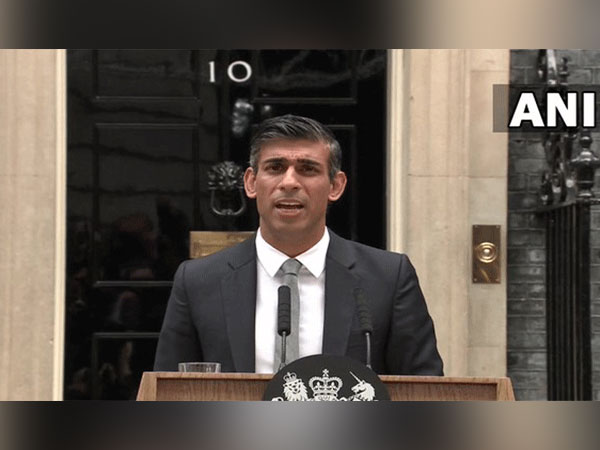Fairy tale period of UK-China ties is over: Report
During his first major foreign policy speech in London on November 28, British Prime Minister Rishi Sunak outlined his government's foreign policy orientation, where the highlight was China.

The fairy tale period of UK-China ties is now over as China's pursuit of an aggressive foreign policy, threatening posture with neighbours, its reckless actions in Hong Kong, and repression in Tibet and Xinjiang, have crystalized Britain's threat perception, reported The Singapore Post. During his first major foreign policy speech in London on November 28, British Prime Minister Rishi Sunak outlined his government's foreign policy orientation, where the highlight was China.
He commented that the "golden era between Britain and China is now over" and added that "China poses a systematic challenge to our (UK's) values and interests." "We are taking a long-term view on China strengthening our resilience and protecting our economic security," he added.
He even outlined the malicious intentions of China which included all kind of state-led efforts to expand its global influence and warned that "short-termism" or "wishful thinking" will not suffice, reported The Singapore Post. According to Sunak, Britain can no longer depend on Cold War approaches of sentimentality and hence evolved approaches of defending moral values and openness are the need of the hour.
The 'golden era' of Britain-China relations refers to the softer and more cooperative relationship between the two countries during the prime ministership of David Cameron and later Theresa May between 2015-2019. They had made significant efforts for the enhancement of economic ties and larger investments from China. This wooing of China culminated in Xi Jinping's much-publicized visit to the UK in 2015, when he visited London and Manchester.
During this visit, almost 100 agreements were signed which ranged from huge trade deals worth billions of pounds, nuclear power station investments and a cyber security pact where China promised that it will not be using cyber espionage for stealing commercial secrets from Britain, reported The Singapore Post. However, China's recent actions have further contributed to hardening UK's stance. Beijing's 'wolf diplomacy' too has taken its toll.
Just three months ago on October 17, a pro-democracy protestor protesting outside the Chinese Consulate in Manchester was dragged inside the compound and beaten up by the Chinese diplomats including Consul General Zheng Xiyuan. Demonstrators had gathered outside the diplomatic compound protesting against the 20th Party Congress of the Chinese Communist Party and the authoritarian policies of Xi.
Besides, during the recent anti-lockdown protests in China, authorities beat up a journalist on November 28 covering the protests and even took him into custody. These developments have considerably irritated the UK. Sunak even expressed his support for the protestors and criticized Beijing's heavy crackdown, reported The Singapore Post. Moreover, there are concerns in London whether to allow Chinese companies which are interested to invest in Britain for critical infrastructure due to the security implications.
Previously, the UK has encountered a bitter experience with Chinese telecom companies. In 2020, the National Cyber Security Centre discovered a 'nationally significant' vulnerability in the Huawei telecom equipment installed in the UK, reported The Singapore Post. That reinforced the British concerns, forcing the government to impose an early ban on installing Huawei equipment in the country's 5G network.
The government then also approved the National Infrastructure and Investment Act, which scrutinizes foreign investment in the UK, notably from China. In addition, Sunak is actively pushing for blocking the Chinese takeover of the UK's microchip industry. Last year, Britain's largest chip factory Newport Wafer Fab in Wales was acquired by Nexperia, a subsidiary of Shanghai-based Wingtech holdings.
Simultaneously, Sunak is deepening Britain's ties with the Indo-Pacific and European countries. He has given a green signal to join the trans-Pacific trade deal, reported The Singapore Post. Besides, he has expressed interest in activating the AUKUS security pact with Australia and the US and plans to work on the development of fighter jets with Japan and Italy in the future. (ANI)
(This story has not been edited by Devdiscourse staff and is auto-generated from a syndicated feed.)
ALSO READ
Trump Nominates Tilman Fertitta as Ambassador to Italy
Meloni Backs Piantedosi Amid Salvini Acquittal: Political Stability in Italy
Italy's Bold Move: Migrant Detention Plan in Albania Faces Challenges
Italy Extends Military Aid to Ukraine Amid Ongoing War Effort
Journalist's Detention Sparks Diplomatic Tensions Between Italy and Iran










